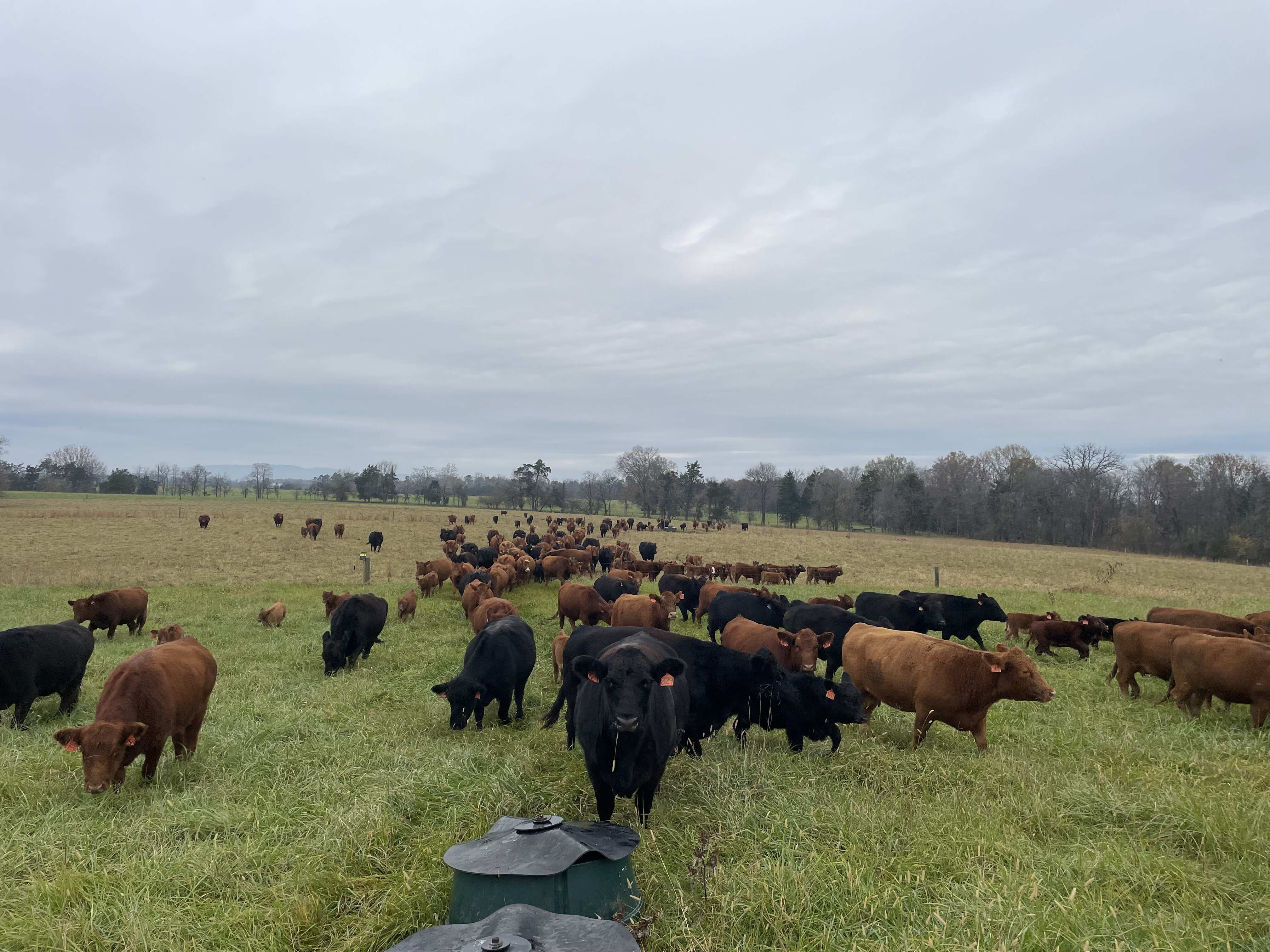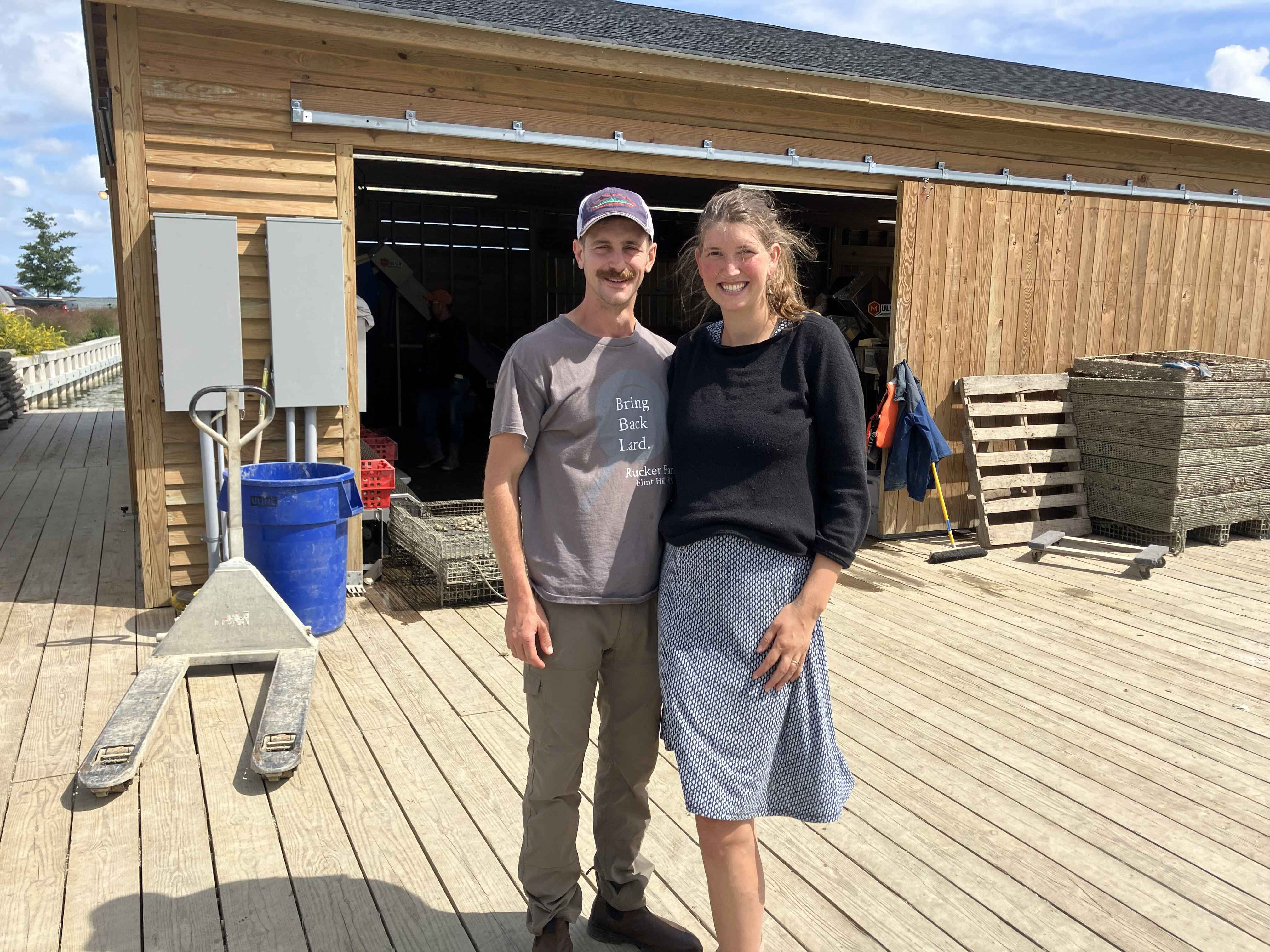Hands and Health, Healing RA
posted on
June 12, 2025


Dear Rucker Farm friends,
We’ve been doing some soul searching lately. Our house has been deep in what feels like an endless “sick season” this spring—one bug after the next making its way through all five of us. As I write this, Sigrid is curled up on my lap with a mild fever, the third and final child to catch the latest 24-hour bug before either Garrett or I fall!
Garrett and I have always made firm, sometimes very hard, choices when it comes to our family’s health—especially around food. But in full transparency, we’ve had a few moments lately where we’ve looked at each other and asked: Does any of this even matter? Our kids are sick anyway!
And the answer, of course, is yes. Yes, we still believe that food is powerful. That it is a cornerstone of health. But that doesn’t mean it's convenient, or that it's a silver bullet.
Some of you know this already, but when I was 16, I was diagnosed with Rheumatoid Arthritis. My hands, wrists, and feet were riddled with pain. I was reliant on 800mg of ibuprofen just to get through the day, and I spent years trying everything from steroids to infusions to self-injectables—none of which brought real healing, just temporary symptom relief at best.
That changed after the birth of our first child, Toren. I always say becoming a mother is what healed me. During pregnancy, my symptoms went into a form of remission I hadn't experienced in over a decade (which is actually common for many pregnant women). But I remember the exact moment, two months postpartum, when I woke with Toren asleep on my chest and my hands hot, swollen, and stiff. I grimaced moving him. I grimaced sitting myself up. It hurt to hold my new baby. I cried. He cried. I knew my old companion was back.
Those months were some of the hardest of my life. I was committed to breastfeeding and knew I couldn’t return to my usual meds. I didn’t go back to the rheumatologist—I already knew my options. I was taking too much ibuprofen just to dull the pain. But then again, I didn’t let the pain stop me from things in the past— I’d hiked the Appalachian Trail, played highschool sports, birthed our son at home. But still, chronic pain colored every detail: turning the car key, buttoning pants, writing, chopping food, that first hour of hobbling out of bed.
I had always known that food and stress affected my flares. But I’d never committed to a diet long enough, or without medications, to make a difference. And frankly, the world of advice is overwhelming: vegan? keto? carnivore? Everyone’s selling something. At one point I even did bee venom therapy!
I turned to YouTube. Blogs. Real people. I found a TED Talk on something called the Paddison Program, and it clicked—I don’t need to cure my RA, but I need to rebuild the gut microbiome. That was the first time I’d heard the phrase “leaky gut.” NSAIDs like ibuprofen and Tylenol can actually burn holes in your intestines. And yet, those were the tools I was relying on to function to keep me from the “real drugs”.
So I stopped. I cut everything out and started over.
For about 8 months, I lived on just a few things: sweet potatoes, poached greens, buckwheat, water, and salt. I ate until I felt satisfied. My goal was to create a simple environment in my body so the right bacteria could grow. Slowly, things shifted. I added brown rice. More root veggies. Broth. And then... chicken. (Side note, this was all in Garrett's and my second year of marriage, talk about an adjustment– What a guy for working with me threw this!)
That moment, when I could finally eat chicken again, was the start of what would become Rucker Farm. Garrett and I had just visited Polyface Farm. I said, “If I’m going to eat chicken, it needs to be the best chicken.” Garrett said, “I can probably do that”.
Later, I began to recognize patterns in what triggered my flares—most processed foods, all hydrogenated oils, gluten, and non-natural sugars would nearly always set me back. I can’t say with certainty that grain-finished beef was a sole culprit, but I did track a few instances where I reacted poorly after eating it. Eating out, no matter how careful I was, almost always led to a flare. That’s why it still feels wild to say: today, I can eat almost anything, anywhere. But it took years of rebuilding—and listening to my body every step of the way.
This journey also opened the door to learning more about how food is grown. I began to understand that grains treated with glyphosate act like antibiotics in the body—disrupting gut flora and contributing to the very issues I was working so hard to heal. If those grains are fed to animals, we feel strongly that the animals' nourishment is struggling too.
That’s one reason—one very personal reason—why we’re committed to non-GMO, grass-fed beef and regenerative systems. We aren’t just trying to raise food. We’re trying to raise the kind of food that supports life, resilience, and healing from the soil up. We ARE nature!!!
This story isn’t meant to suggest that our food can fix everything. Our kids still get sick. We still get overwhelmed. But I do believe that real food, raised thoughtfully, has the power to do something essential: support the body in doing what it was designed to do—heal, adapt, and endure.
Rucker Farm isn’t just a business to us. It’s the result of years of trial and error, of listening to our bodies, of learning how to nourish our family. Whether you’ve been with us since the beginning or are just learning about our work, thank you. Thank you for being part of this bigger story.
Love, Isabelle





